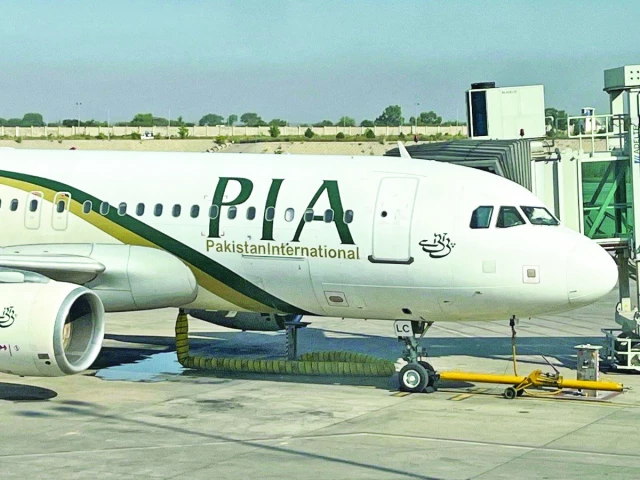Islamabad:
Britain has lifted a five-year ban on Pakistani airlines, giving them the opportunity to apply to resume UK aircraft, just as the government is raising efforts to privatize Pakistan International Airlines.
The ban was introduced by 2020, days after the government began an investigation into the validity of pilot licenses issued in the country following a Pia aircraft accident that killed 97 people.
British High Commissioner Jane Marriott said the abolition of the ban followed security improvements from Pakistani authorities. The decision comes only months after the European Union took similar steps.
“I am grateful to aviation experts in the UK and Pakistan for their collaborative work to make improvements to meet international security standards. Although it will take time for flights to resume when logistics are in place, I look forward to using a Pakistani carrier when I visit family and friends,” she said.
The abandonment of the ban is expected to bring tremendous relief and the opportunity for the more than 1.6 million British inhabitants in Pakistani heritage and thousands of British nationals living in Pakistan.
It also comes as a potential catalyst to improve the bilateral trade of £ 4.7 billion between the two countries.
With now cleared airspace, the sky is again open to stronger people-to-human relations and financial cooperation between Pakistan and the United Kingdom.
While several private Pakistani carriers operate domestic and regional routes, primarily to the Middle East, Pia has historically been the only carrier serving long -distance flights to Britain and the European Union.
Pia had previously estimated an annual loss of income of around RS40 billion ($ 144 million) due to the ban. The airline has long considered British routes, including London, Manchester and Birmingham, among its most profitable and has demanded landing tracks at London’s Heathrow Airport that could become active again.
Pia’s spokesman said the airline ended preparations to resume the British flights “in the shortest possible time” and had submitted his proposed schedule.
Flights would resume with the Islamabad Manchester route, with three weekly flights originally pending the approval of the schedule, the spokesman added.
Earlier this month, the Privatization Commission approved four groups to offer a 51-100% share in Pia. Final bids are expected later in the year. The government hopes that the recent reforms that led to the airline’s first operating profit of 21 years – will help attract buyers during a wider IMF -supported privatization development.
Defense Minister Khawaja Muhammad Asif on Wednesday told a news conference that the resumption of all routes would improve PIA’s value prior to privatization. He also said there were plans to restart flights to New York.
“Pakistan will apply for an operating license to resume direct flights to the UK,” he said.
Asif criticized an irresponsible statement by the then Aviation Minister Ghulam Sarwar Khan of Pakistan Tehreek-E-Insaf (PTI) the government for triggering the ban on PIA operations in European countries and UK.
Ghulam Sarwar’s remarks caused irreparable damage to the reputation of both Pia and Pakistan, he added.
In response to a question, he said that different consortia had shown interest in the PIA -private process.
Meanwhile, Prime Minister Shehbaz Sharif, who offers the British Air Safety Board’s decision, the “positive development” would improve Pakistan’s international reputation and further strengthen bilateral cooperation.
The Prime Minister also congratulated the Minister of Defense with the abolition of the ban.
At a meeting held at the Prime Minister’s office, Prime Minister Shehbaz praised the efforts of the Defense Minister and his team as well as the aviation department for their dedicated work to achieve this diplomatic and operational breakthrough.
“Resumption of Pakistani aircraft to Britain marks an extremely important performance for the country,” said the prime minister, noting that this step would greatly facilitate the journey of the great Pakistani diaspora in the UK and increase tourism between the two countries.
(With additional input from agencies)



